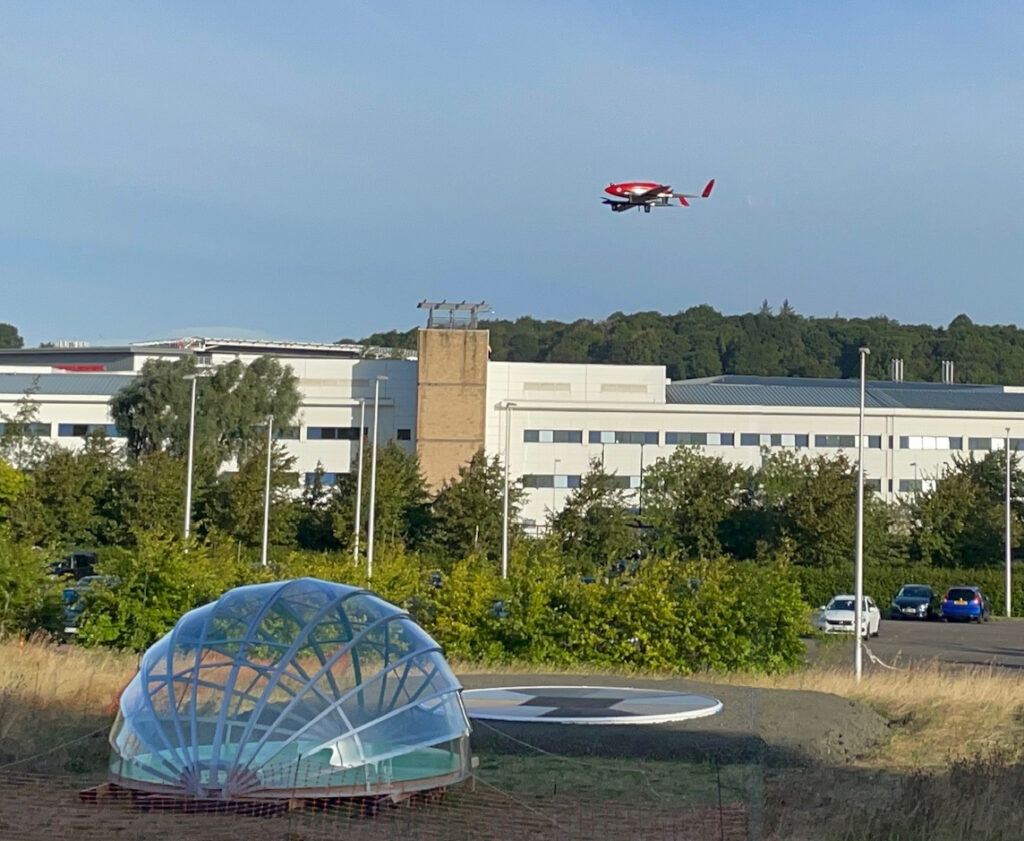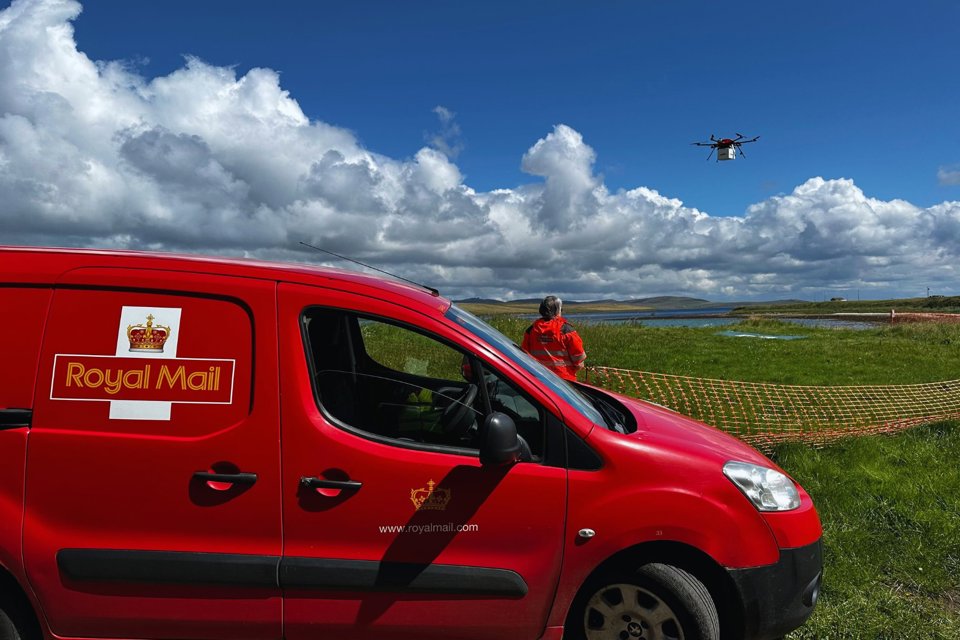Skyports Drone Services and Royal Mail have extended trials of a drone delivery service in Orkey until at least February 2026.
The extension comes as the service celebrates its one-year anniversary, having been launched for an initial three-month trial in August 2023.
The Orkney I-Port project is one of the first UK commercial drone delivery services to be implemented on a regular basis under existing regulatory frameworks, using a beyond visual line of sight with visual mitigation framework.
It is enabling a daily inter-island mail distribution service between Stromness on Orkney’s Mainland and the islands of Graemsay and Hoy.
Chris Paxton, USO programme manager at Royal Mail, said: “Through our successful trial with Skyports, we are making our deliveries to remote communities quicker, more reliable and more environmentally friendly.
“We’d like to thank our Orkney posties for helping with this trial and upskilling themselves in the process.”
The extension is being funded by Connectivity for Remote Orkney Future Transport (Croft), a UK Space Agency funded project announced by Skyports during Farnborough International Airshow.
The 517 flights so far, operating in all weather conditions, have covered a total distance of more than 1,360km (845 miles).
Working in partnership with Orkney Islands Council Harbour Authority and Loganair, Skyports’ drone delivery operations have shortened Royal Mail delivery times by up to 24 hours.
Royal Mail’s local postal workers have acted as visual observers for the flights and Loganair has supported pilot transport to and from Orkney.
The next phase of the project aims to embed key learnings and improvements from the first stage of operations, including hardware and software upgrades; new take-off points; and training of Royal Mail staff.
Royal Mail and Skyports are also trialling the use of drones to deliver mail between the remote isles of Islay and Jura in the Inner Hebrides.
Alex Brown, director of Skyports Drone Services, said: “Our Orkney flights with Royal Mail demonstrate the viability of long-term drone operations and highlight the role that new aviation technologies can play in supporting essential public services.
“This project also shines a spotlight on the work we do beyond flying. To secure the strong growth trajectory we believe drones can achieve, we’re working hard to support the development of an enabling ecosystem for drone services.
“Our next phase of work in Orkney will explore how 5G can support drone operations in harsh rural environments and provide key learnings that we can apply to other future projects.”
Minister visits medical drone delivery project

A project using drones to deliver medical supplies across Scotland has been heralded as a “technological revolution” by the minister for aviation and maritime, Mike Kane, in his first official visit to the region.
Meeting with Andy Cliffe, CEO of AGS Airports, which operates Aberdeen International Airport, to celebrate the airport’s 90th anniversary, the minister saw first-hand how drones were being used to deliver medical supplies to remote locations across Scotland.
Spearheaded by the airport, Project Caelus is backed by more than £7 million in UK Government funding.
Kane said: “Aberdeen has demonstrated what the next era of aviation can look like with its successful medical drone delivery trials.
“I want to help all players in the industry across the country to embrace these innovative solutions that enhance regional connectivity and pave the way for a more sustainable future.”
Laboratory samples have been flown from Edinburgh to Melrose by drones, thanks to the project. A journey that usually takes up to five hours by road transport could now take as little as 35 minutes.
Cliffe said: “Through Project Caelus we have a real opportunity to revolutionise the way in which healthcare services are delivered across Scotland.”























Login to comment
Comments
No comments have been made yet.